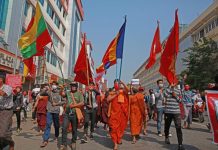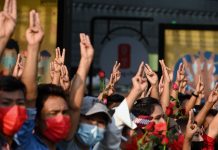Hong Kong chief executive Carrie Lam has issued a ban on face masks using a colonial-era emergency law as basis for implementation.
Lam announced that the ban on face masks in Hong Kong will be implemented starting October 5, following the violence that escalated during protests on October 1. Lam said that the decision to implement a ban was because the situation could not be allowed "to get worse and worse".
Protesters have responded that they will disobey the new law and immediately took to the streets. Mask-wearing activists had also earlier urged others to wear masks in defiance of the government, which according to critics is becoming increasingly authoritarian.
According to Lam, implementation of the colonial-era law was necessary because the violence during the weekly protests was "destroying the city". The ban is perceived to be difficult to implement and would cause controversy.
Pro-democracy lawmaker Claudia Mo argued: "This is a watershed. This is a Rubicon. And I'm worried this could be just a starter. More draconian bans in the name of law could be lurking around the corner."
Marta Hurtado, the United Nations human rights spokeswoman, explained at a press conference in Geneva that "any restriction must have a basis in law and be proportionate and as least intrusive as possible". Meanwhile, UK Foreign Secretary Dominic Raab said "political dialogue is the only way to resolve the situation".
According to Secretary for Security John Lee, the ban would be applicable to approved and unapproved public assemblies, such as rallies and marches, as well as in unlawful assemblies and riots. It will include all kinds of facial covering, including face paint.
Protesters have increasingly worn masks for several reasons, including hiding their identities from employers, parents and, in some cases, police, and and to protect themselves from tear gas.
Those wearing masks for health reasons or professional requirement will be exempted from the ban.






